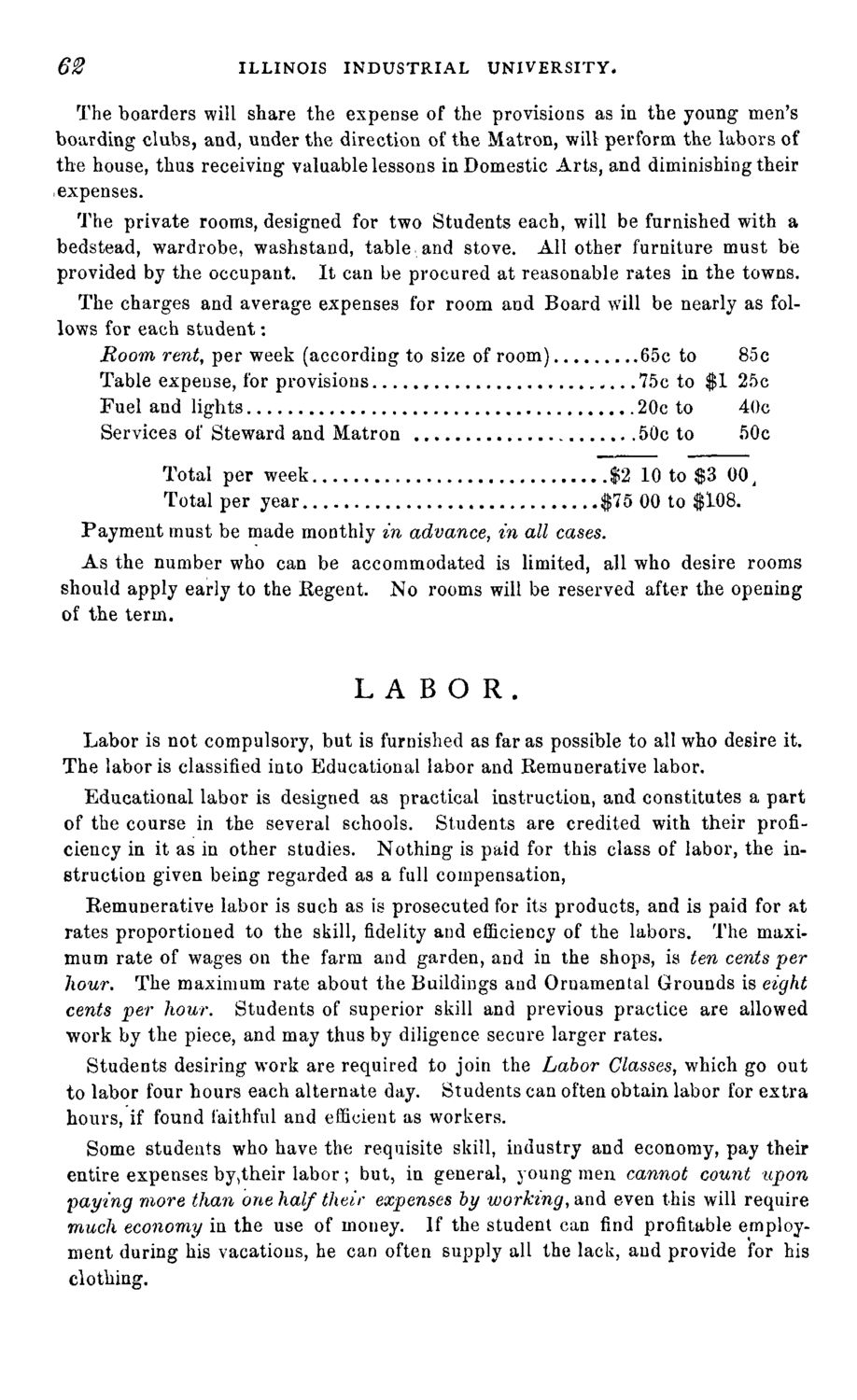| |
| |
Caption: Course Catalog - 1871-1872
This is a reduced-resolution page image for fast online browsing.

EXTRACTED TEXT FROM PAGE:
62 ILLINOIS INDUSTRIAL UNIVERSITY. The boarders will share the expense of the provisions as in the young men's boarding clubs, and, under the direction of the Matron, wilt perform the labors of the house, thus receiving valuable lessons in Domestic Arts, and diminishing their expenses. The private rooms, designed for two Students each, will be furnished with a bedstead, wardrobe, washstand, table and stove. All other furniture must be provided by the occupant. It can be procured at reasonable rates in the towns. The charges and average expenses for room and Board will be nearly as follows for each student: Room rent, per week (according to size of room) 65c to 85c Table expense, for provisions 75c to $1 25c Fuel and lights 20c to 40c Services of Steward and Matron 50c to 50c Total per week $2 10 to $3 00, Total per year $75 00 to $108. Payment must be made monthly in advance, in all cases. As the number who can be accommodated is limited, all who desire rooms should apply early to the Regent. No rooms will be reserved after the opening of the term. LABOR. Labor is not compulsory, but is furnished as far as possible to all who desire it. The labor is classified into Educational labor and Remunerative labor. Educational labor is designed as practical instruction, and constitutes a part of the course in the several schools. Students are credited with their proficiency in it as in other studies. Nothing is paid for this class of labor, the instruction given being regarded as a full compensation, Remunerative labor is such as is prosecuted for its products, and is paid for at rates proportioned to the skill, fidelity and efficiency of the labors. The maximum rate of wages on the farm and garden, and in the shops, is ten cents per hour. The maximum rate about the Buildings and Ornamental Grounds is eight cents per hour. Students of superior skill and previous practice are allowed work by the piece, and may thus by diligence secure larger rates. Students desiring work are required to join the Labor Classes, which go out to labor four hours each alternate day. Students can often obtain labor for extra hours, if found faithful and efficient as workers. Some students who have the requisite skill, industry and economy, pay their entire expenses by,their labor; but, in general, young men cannot count upon paying more than one half their expenses by working, and even this will require much economy in the use of money. If the student can find profitable employment during his vacations, he can often supply all the lack, and provide for his clothing.
| |